Terry Smith was an engineer by profession, but he applied engineering principles to his personal life as well — and taught grateful family and friends to do the same.
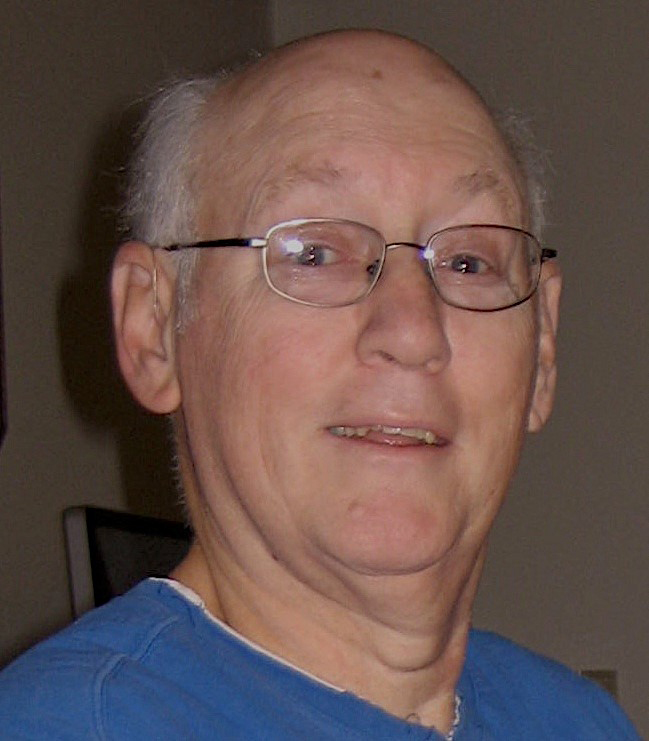
Since his death on Dec. 14 at the age of 78, Smith has been eulogized in silent but significant ways in his Greene County hometown of Fair Grove by the daily attendance at one of his proudest achievements: the Fair Grove Senior Center.
“My dad was someone who, with a glint in his eye, worked to nudge the world,” says son Tim Smith. “If something in the world needed to be straightened, even the tiniest bit, he would grab it and make it square.
“Sometimes it was something big, something like ‘Let’s build a senior center.’ He approached big projects like 10,000 small things that needed to happen correctly — the job of a process engineer.”
Tim’s sister Tina Miller agrees: “I’m not an engineer; I’m a social worker. Sometimes I have to jump into the middle of a crisis or help someone solve a serious problem that they’re having. Watching how my dad would sit down and calmly observe and research to figure something out, that’s how I approach things in my work, and at home and in the community, too. The way my dad demonstrated problem-solving has served me very well.”
Terry’s son-in-law, Joe Miller, puts it this way: “Anytime Terry was solving a problem with me, usually he would say, ‘Well, Joe, I think we need to have a Dr. Pepper and think about this … If we give it enough time, give it enough effort, give it enough brainpower, we can figure most anything out.’”
Fair Grove Senior Center a testament to his skills
The senior center was a major challenge — a $1.5 million challenge — when the idea was hatched in the early 2000s. Terry was a leader who organized raffles and other fundraisers, and more importantly wrote grant applications that brought in more than half the cost of the building on South Orchard Boulevard, where upwards of 100 meals are served on weekday noons,
Terry also applied his engineering skills in helping design the structure, keep tabs during construction, install a solar power system to lessen utility bills. The result is that the center is debt-free — an extraordinary accomplishment for a community of about 1,600 residents.
Even after the center was up and running, Terry seemed to be always around, helping with chores and ready to fix any problems that might crop up.
“After one particularly busy day,” recalls Marilyn Meals, president of the center’s board of directors, “I said to Terry, ‘Don’t you ever get tired of this place?’ He looked at me and — totally serious, totally straightforward, totally honest — he replied, ‘No! It’s my baby!’ It was so important to him.”
Born in Germany, moved often
Terry was born far from Fair Grove, in Germany, while his father, Merlin, was stationed there with the U.S. Army. His first dozen years were a whirlwind of moves. Terry attended eight different schools as the family moved back to the states to postings in Fort Knox, Ky., Omaha, Neb., Fort Leonard Wood and elsewhere.
“Moving so often was difficult,” recalls Rue Ann Withers, Terry’s four-years-younger sister. “You’d make a good friend but then you’d have to leave them behind to move again because of the Army.”
However, Rue says the frequent relocations didn’t sour her brother’s genial disposition. “The only thing I can remember Terry getting really mad about,” she says, “was when somebody squeezed the toothpaste in the middle of the tube. That would really aggravate him.”
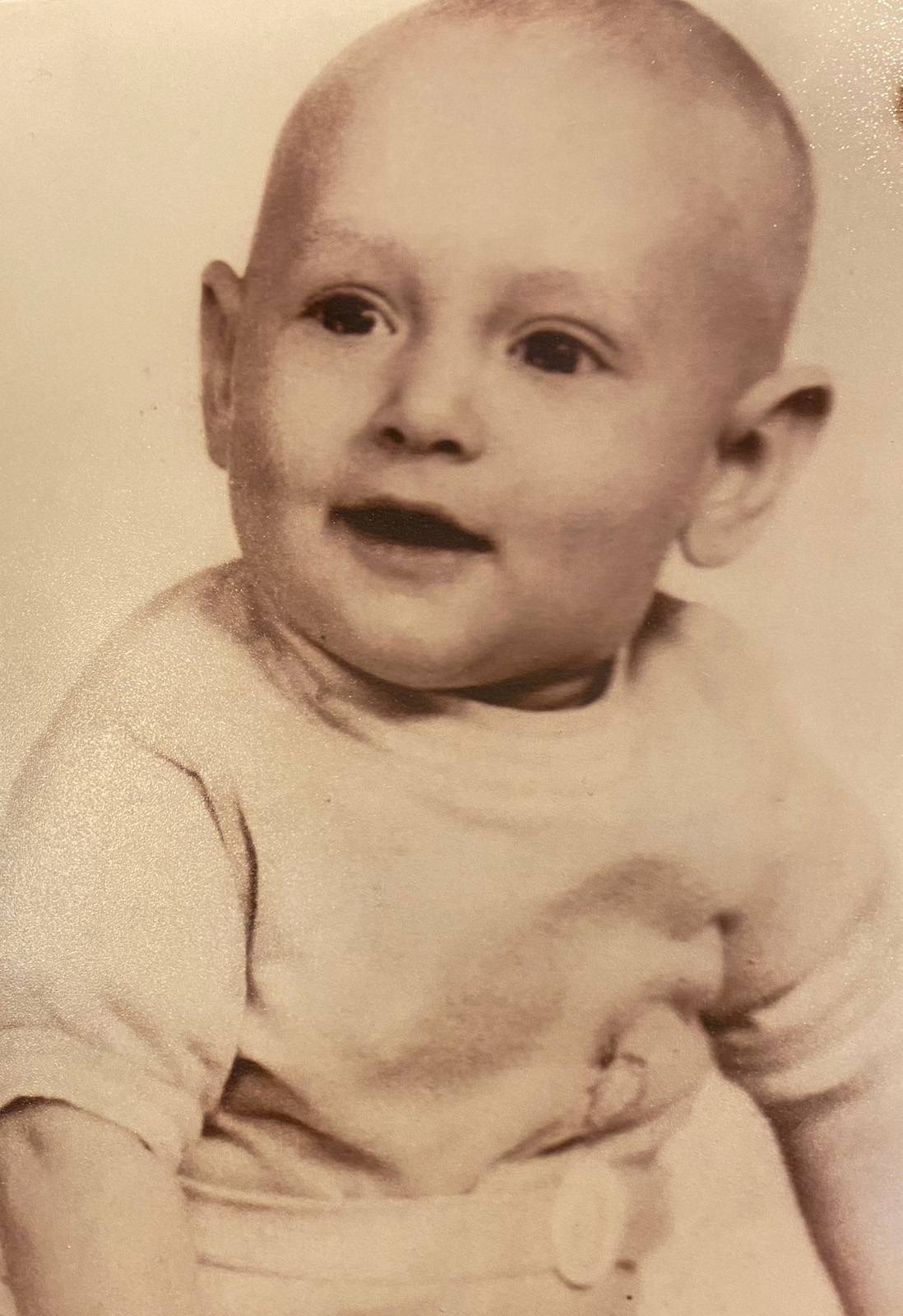
Otherwise, she says, Terry had a good sense of humor, didn’t like to argue, was exceedingly patient and enjoyed explaining things to her — except, she admits, “If I asked him a question, I’d have to lay down on the floor because he went into such great detail. And all the while I was thinking, ‘Oh, I just want the answer!’”
His sister also reveals that Terry could be “a little ornery.” She cites an example:
“One day, he called me to come look because he had something for me to see. Well, our parents were gone, and he’d found the Christmas candy under our mom’s bed. He pulled it out and it was fudge, with waxed paper between the layers. He lifted some of the layers and we reached down and got a piece.
“He was a typical boy in that regard — and I liked that, because I got some fudge.”
In Springfield: from busboy to engineer
By the time Terry reached high school age, his father had mustered out of the military and the family had settled in Springfield, where Terry was graduated from Hillcrest High School in 1961. He worked as a busboy at two iconic Springfield businesses of that era, the Shady Inn restaurant on West Sunshine Street and the huge Katz Drug Store that featured a restaurant when it first opened on Glenstone Avenue just north of Sunshine.
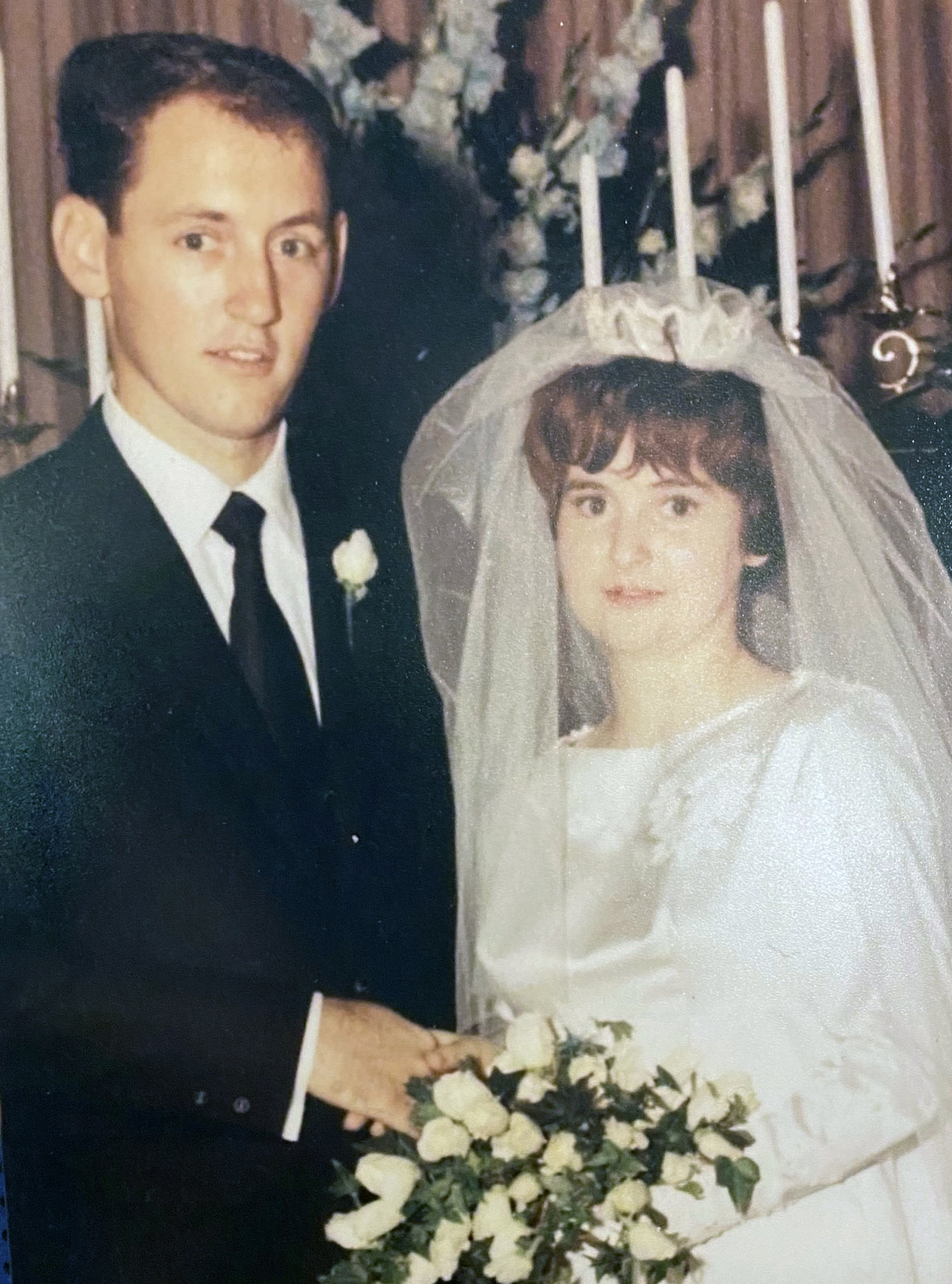
His wife of 53 years, Marilyn, recalls an episode when Terry went to a job agency seeking a better job than that of a busboy: “They told him he’d have to take an aptitude test. And when it came back, every single thing was circled that he was qualified to do — everything!
“The lady there told him, ‘You’re qualified to do anything except to be president!’ And Terry said, ‘The only reason I can’t is that I’m too young,’” referring to the constitutional requirement that candidates for the highest office in the land be at least 35 years old.
Terry enrolled at what was then Southwest Missouri State College and earned a degree in production management. He signed on with Litton Industries, which at the time operated a major electronic circuit board manufacturing plant near Springfield’s municipal airport. He rose through the ranks to become a senior quality control engineer over a 40-plus-year career with Litton.
Former Springfield mayor Bob Stephens, who worked in the Litton human resources department 1978-80, remembers Terry as “hard-working, knowledgeable, relatively quiet” and also for his sense of humor.
“I could use the word ‘droll’ to describe it, but that doesn’t give the complete picture,” Stephens says. “Terry’s humor was the kind that you wouldn’t ‘get’ when he first said something, but later you’d have one of those ‘Oh, gosh, I’ve been had’ moments when it sunk in.
“I remember one conversation we had in the lab about a particular operation. Keep in mind that I was in the HR department and knew nothing about the technical aspects of what we were producing. Terry was patiently explaining that certain chemicals had to be kept chilled prior to use. I asked ‘How cold?’ and he replied in degrees Centigrade. When I asked him to translate that temperature (into Fahrenheit), he responded, ‘Well, you shouldn’t store your favorite brass money in there.’
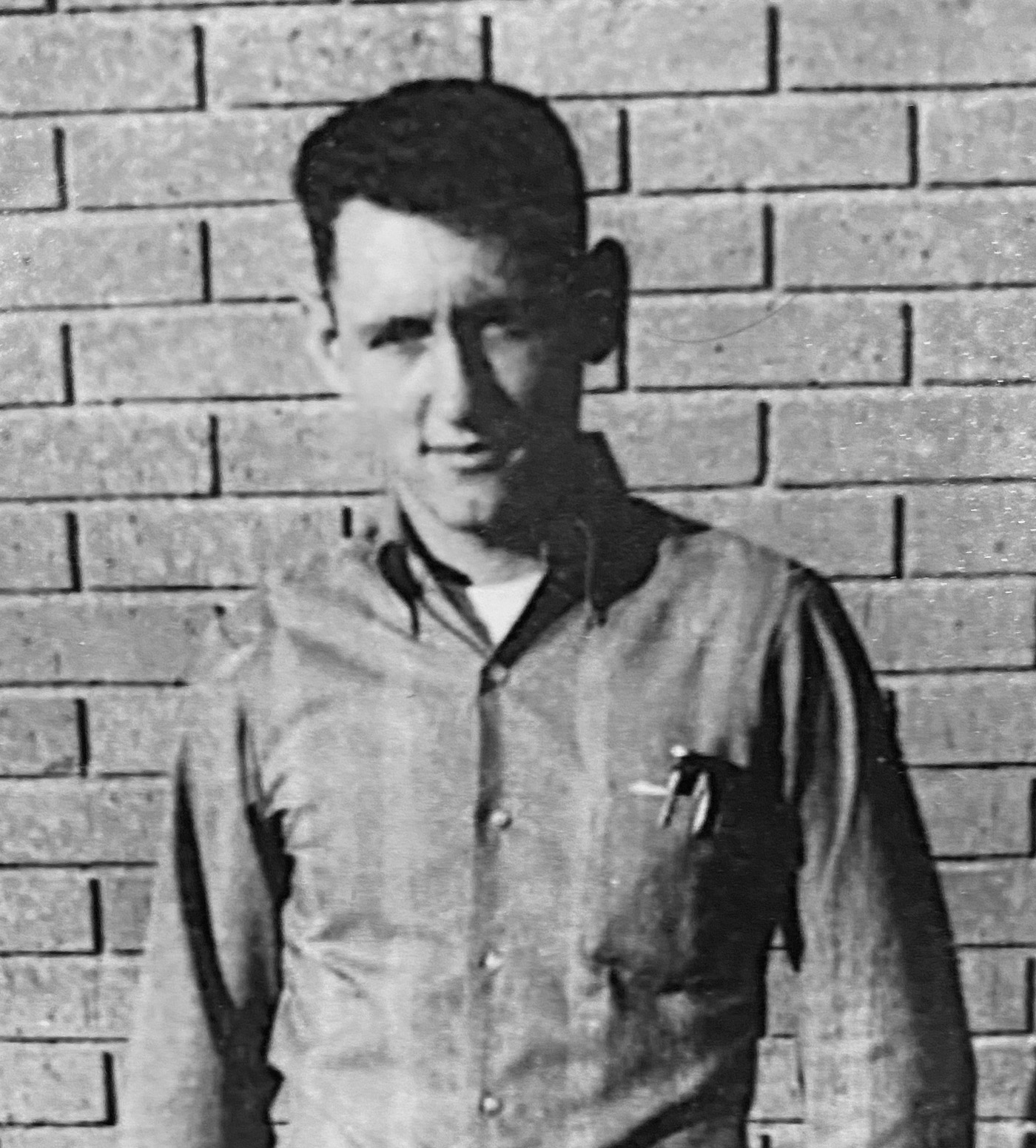
“As I went back to my office,” Stephens says, “I was snickering out loud, and I know that everyone I met in the hallway thought I’d been sniffing too many chemicals or something.”
‘Getting me to fly on my own'
Tim Ritter met Terry in the summer of 1988 when he was hired as a process engineer at Litton.
“I didn’t really know anything about being a process engineer,” Ritter claims. “Terry had been assigned to a new section of the plant, and it was taking up all of his time, so I’d been assigned to some of his areas. Whenever I had a problem or was terribly confused, they would say, ‘Go ask Terry and he will help you.’ So I did — several times. And eventually, one day Terry looked at me and said, ‘Well, I can either keep holding your hand or you could learn to do this job.’ I didn’t bother Terry any more after that day.”
Ritter hastens to add: “It was most definitely Terry saying to me, ‘I’ve helped you here, but it’s time for you to do your own thing. He was kind-of kicking me out of the nest, as it were, and getting me to fly on my own.”
Ritter did just that during a successful career with Springfield manufacturers over the following three decades. He also developed into a writer on Ozarks topics, and reconnected in recent years with Terry and wife Marilyn when he joined them on the membership roster of the Springfield Writers Guild.
“Terry ran the website for the Writers Guild, and that put me into close contact with him as I served as president of the guild this year,” Ritter notes.
Poetry, music jam sessions, youth baseball among many pursuits
With Marilyn, who is a longtime columnist for the Buffalo Reflex newspaper, Terry published a collection of poems written by the couple titled “Poetic Thoughts,” which is available through Amazon, Barnes & Noble and other booksellers.
In addition to his ongoing daytime work at the senior center, Terry organized and promoted Tuesday evening country and bluegrass music jam sessions.
“Terry was one of the nicest men we’ve ever dealt with,” says Bill Baker, a member of the Chigger Creek Bluegrass Band that is a regular at the senior center, especially on the last Tuesdays of the month when birthdays are celebrated.
“Terry put in a great new sound system at the center, and now all we have to do is bring our own microphones,” Baker adds. “Terry was a wonderful man, very helpful. This world is going to miss him.”
Terry also coached youth baseball and volunteered with the Southern Baptist Chain Saw Unit that cleans up debris following destructive storms in the region. And he used his pickup truck to transport a trailer from which a group dubbed “Good to Go” dispensed meals and water to unsheltered persons.
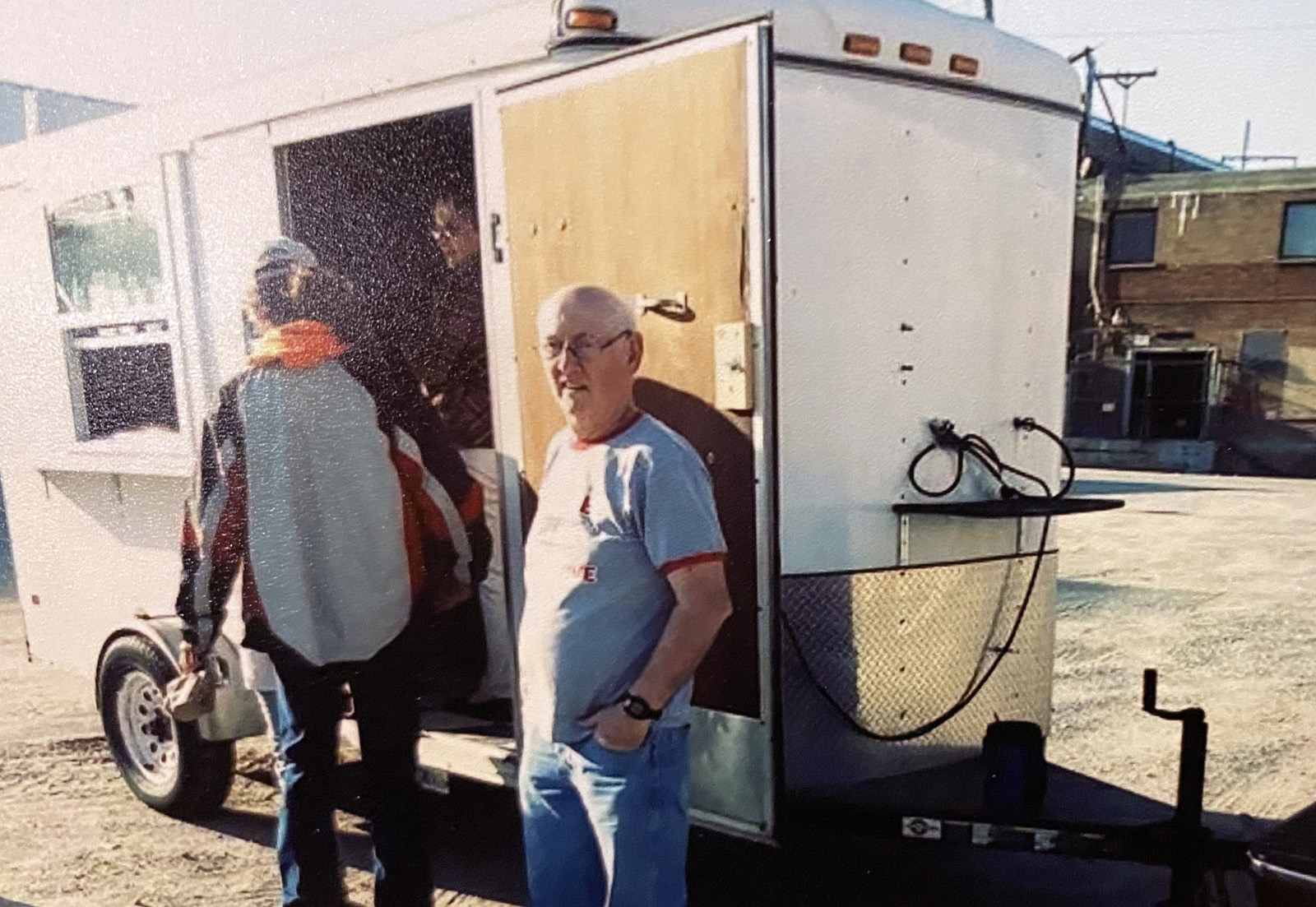
The “Good to Go” project was where Jack Pike met Terry. Pike used his cooking skills in helping produce fundraising dinners during the senior center’s initial campaign. Today, he runs his own charitable hot-meal outreach around northside Springfield called “What Would Janice Do,” named in honor of his late mother.
“Terry pointed me in the right direction,” Pike says. “He inspired me. He’s definitely my hero.”
Yet for all his efforts to help others, Terry is most fondly remembered by his family.
“He was a great dad,” son Tim told a crowd gathered for a Dec. 19 funeral service in Springfield. “I can’t ever remember when he put any effort at all into being a father, but he put all kinds of work into being a dad.
“He took us to Six Flags, he took us to Kansas City Royals and St. Louis Cardinals games, he took us to Silver Dollar City.”
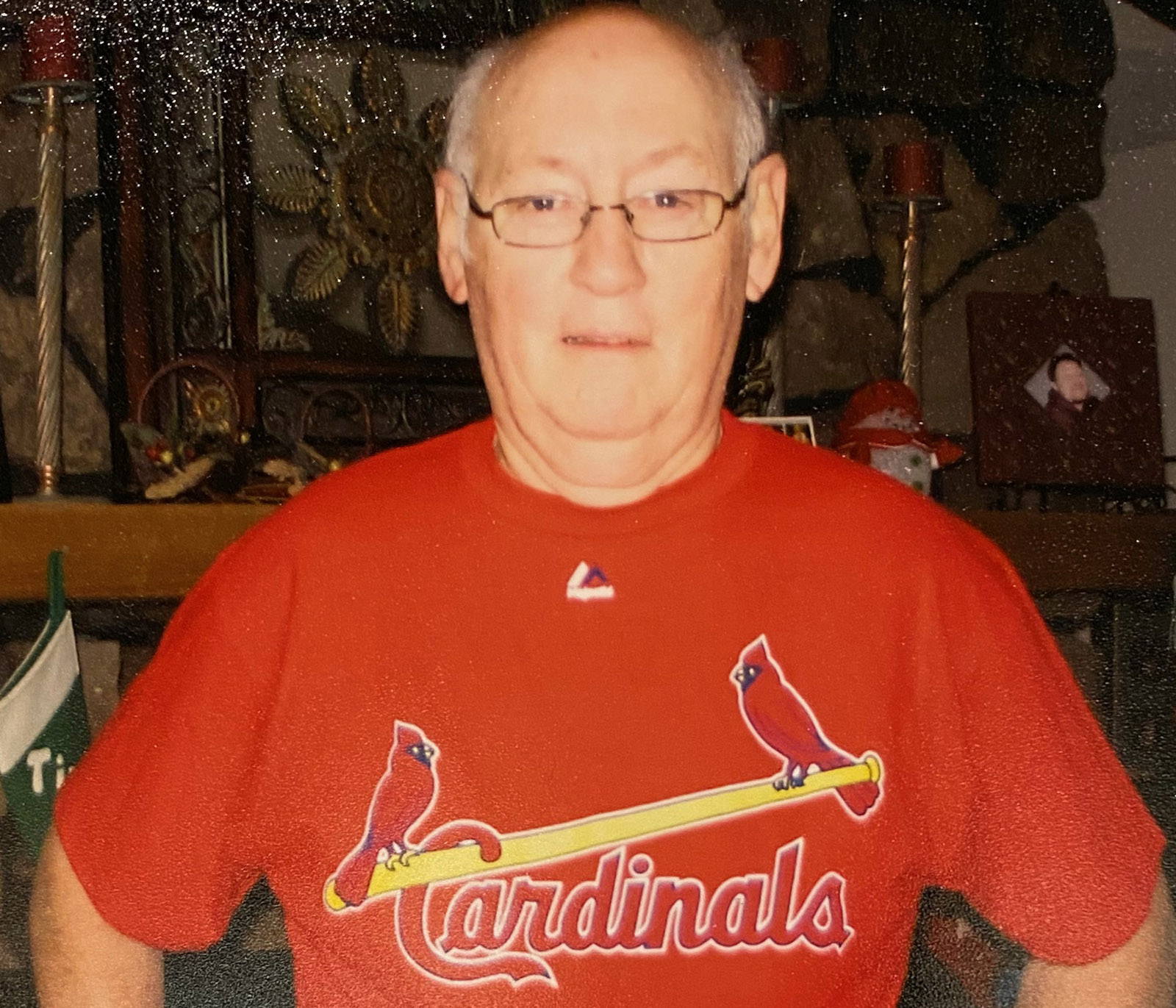
Tim’s sister Tina confirmed that assessment: “He was the best guy you could hope for as a dad. He was a great example of how to be a parent without losing your cool, how to do what you can to help those who need it, how to be somebody who didn’t gossip or bad-mouth people. I grew up with a great example of how to be a good person.”
Tim did note that “a recurring theme in stories about my dad is how he was able to get things done kind of on the sly.” It was rumored that, when out and about on his own, he stopped for sweet treats more often than he admitted. And Tim told of a promotion stunt that involved putting a 16-foot-long, 1,800-pound trailer on the elevated front lawn of the Shrine Mosque in downtown Springfield.
‘We’re going to have to call in The Engineer'
“I said, ‘We’re going to have to call in The Engineer to do that,’” Tim recounted. “That was my dad’s nickname from all my friends and several members of my family — The Engineer.”
Terry came to the Mosque to survey the rise that needed to be surmounted. He declared it could be done,
“So on the day we were to do it,” Tim continued, “my dad shows up with a couple of 2-by-16s and told us where to put them. And he borrowed someone else’s truck — because there was absolutely no way he was going to let his pickup truck be used for such a dumb idea.
“We got that trailer right in place. My dad said, ‘That may be the scariest stupid thing I’ve ever done!’
“But Dad’s favorite part was that we were blocking off traffic in the middle of St. Louis Street without telling the Springfield Police Department that we were going to do it.”
Tina says she, too, profited from Terry’s engineering knowledge and his willingness to share it.
“Before I got married,” she recalls, “I bought a house that was a fixer-upper. And my dad was my partner in most of the projects that I did. I learned how to replace flooring, install a toilet, use power tools to do all sorts of things.
“Now when projects come up, I don’t have to wait for my husband to get home — I can go out and get the tools and fix it myself. I really appreciate that about my dad.”
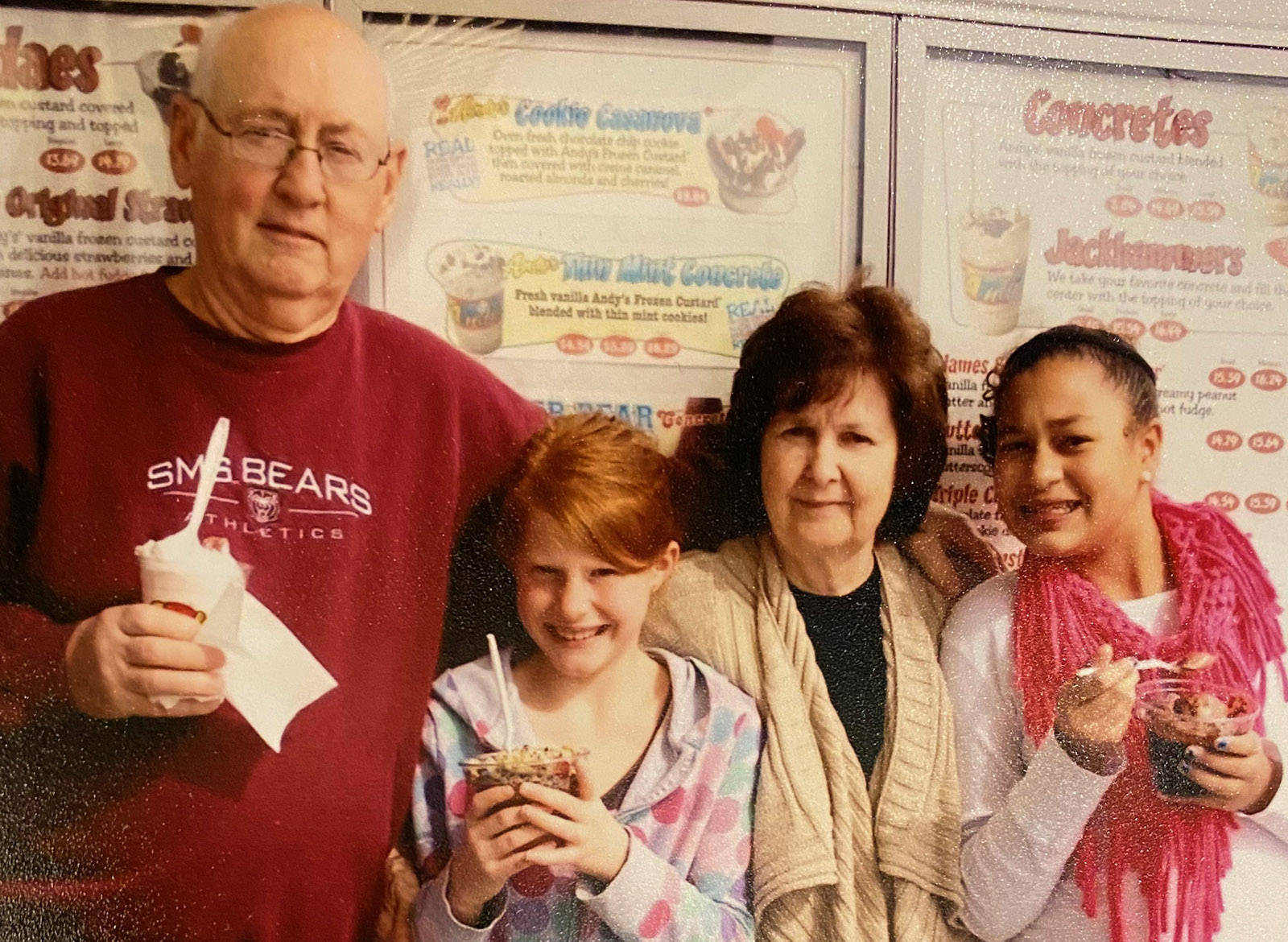
At the funeral, Tim offered this summation of lessons learned from Terry:
“What I understand now as an adult is that things are easier when you break them down into small component pieces, and then you work as hard as you can on nudging those little pieces. There is nothing that is too big in life if you look at it as the small tasks that create the big thing.
“We have an obligation to our fellow man to take the opportunity to nudge, to find that little piece of life that’s not square in the moment, and to walk up and make it square. To notice things, to say something, to do something.
“My dad folded a billion church chairs and folding tables. He ran to Sam’s (Club) a thousand times. He lived each of those moments knowing that something was better at the end than it was at the beginning.
“If you do nothing else when you leave here,” Tim told the gathering at the funeral chapel, “No. 1, stop at Andy’s without telling anybody. And the second thing is to sidle up to somebody and figure out a way to help.
“Because the world is going to be better if we all do that.”


